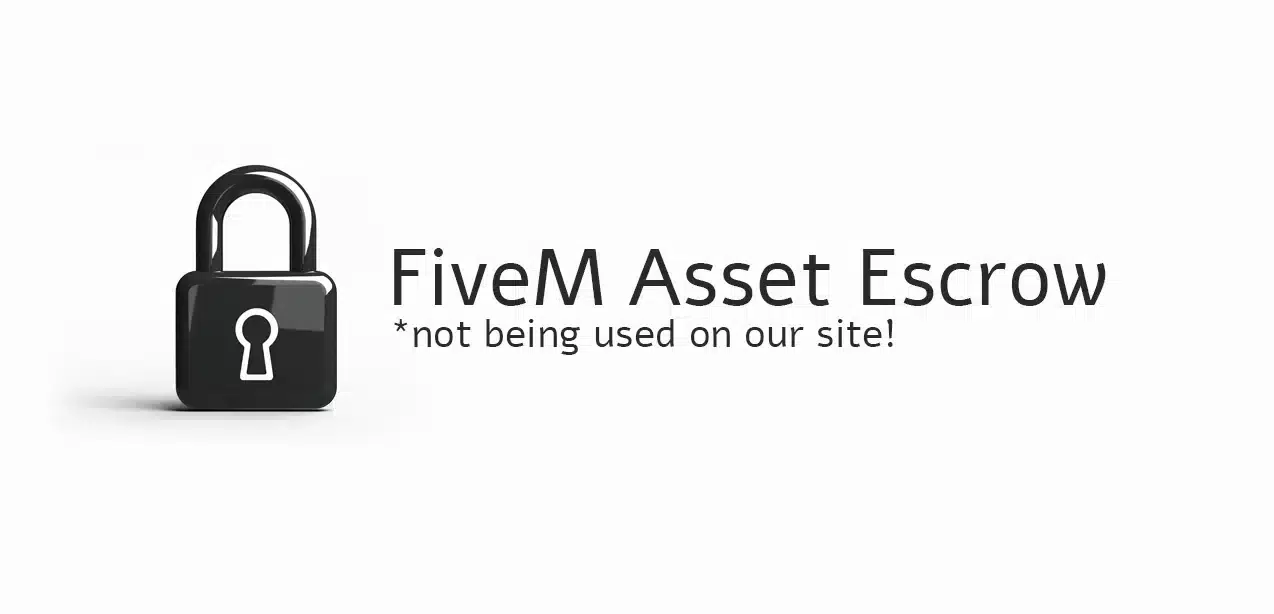The Dangers of FiveM Asset Escrow: What You Need to Know
In the world of gaming, FiveM has gained immense popularity as a modification framework for Grand Theft Auto V. It allows players to create and customize their own multiplayer experiences, adding new features and assets to the game. However, with the rise of FiveM asset escrow, a practice where players entrust their assets to a third party for safekeeping, there are significant dangers that players need to be aware of. This article aims to shed light on the risks involved, common scams and fraudulent practices, legal implications and consequences, as well as provide tips on protecting oneself from asset escrow dangers.
Only use Open Source!
We strongly recommend using only Open Source FiveM Scripts for a variety of compelling reasons. Firstly, Open Source scripts allow you to examine the code yourself, ensuring transparency and enabling you to verify the script’s functionality and security. This means you can confidently check for any malicious code or hidden viruses that could compromise your gaming experience. Additionally, with Open Source scripts, the original creator has limited opportunities to engage in scams, as the community can scrutinize their work and hold them accountable. By opting for Open Source, you not only protect yourself but also contribute to a collaborative environment where developers can improve and innovate together, fostering a safer and more reliable gaming community.
We recommend to only use Open Source FiveM Scripts… Why?
- You can check what is in the code.
- No viruses are present.
- The script creator can’t scam you.
What is FiveM Asset Escrow
FiveM Asset Escrow is a practice where players transfer their in-game assets, such as vehicles, weapons, or currency, to a third party for safekeeping. This is often done to prevent loss or theft of valuable items, especially in highly competitive gaming environments. The third party acts as an intermediary, holding the assets until the agreed-upon conditions are met, such as the completion of a trade or the resolution of a dispute.
Understanding the Risks Involved
While the concept of asset escrow may seem appealing, there are inherent risks involved. One of the primary dangers is the potential for scams and fraudulent practices. Players may encounter individuals or groups posing as trustworthy escrow agents, only to find that their assets have been stolen or never returned. This can result in significant financial losses and a sense of betrayal within the gaming community.
Another risk is the lack of regulation and oversight in the asset escrow market. Unlike traditional financial institutions, there are no standardized rules or regulations governing these transactions. This leaves players vulnerable to unscrupulous individuals who may exploit loopholes or manipulate the system for personal gain.
Common Scams and Fraudulent Practices
There are several common scams and fraudulent practices that players should be aware of when engaging in asset escrow. One prevalent scam is the “middleman scam,” where a player claims to be a trusted escrow agent but instead steals the assets during the transaction. Another scam involves the use of fake escrow websites or platforms that mimic legitimate services, tricking players into transferring their assets to fraudulent accounts.
Additionally, players should be cautious of “chargeback scams,” where a buyer initiates a chargeback on a payment made for assets, effectively reversing the transaction and leaving the seller without their assets or payment. These scams can be devastating, as they not only result in the loss of assets but also potential financial repercussions for the victim.
Important Notice for Tebex Customers
If creators or scripters claim that using asset escrow is for the safety of customers, it’s often a misleading statement designed to mask their true intentions. The reality is that these creators primarily use asset escrow to maintain control over their scripts and prevent them from being leaked or copied without permission. By locking down their code, they ensure that no one else can modify, distribute, or use it in ways they haven’t approved, effectively monopolizing their creations. This strategy is more about protecting their own interests and revenue streams rather than genuinely safeguarding customers. It limits transparency and accountability, making it harder for users to verify the security and integrity of the scripts they are using, which can actually expose them to greater risks.
Protecting Yourself
To protect oneself from the dangers of asset escrow, players should exercise caution and follow best practices. Firstly, it is essential to research and verify the reputation of any escrow agent or platform before entrusting them with valuable assets. Reading reviews, seeking recommendations from trusted sources, and conducting due diligence can help identify trustworthy individuals or services.
Secondly, players should be wary of any requests for personal information or account credentials. Legitimate escrow agents should not require access to personal accounts or sensitive information. If such requests are made, it is a red flag indicating potential fraudulent activity.
Lastly, players should consider utilizing secure escrow services or platforms that offer built-in protections and dispute resolution mechanisms. These services often have established procedures and safeguards in place to mitigate the risks associated with asset escrow.
Conclusion: Stay Open Source!
- Transparency: Open Source scripts allow you to examine the code, ensuring transparency.
- Verification: You can verify the script’s functionality and security by reviewing the code yourself.
- Malware protection: Check for any malicious code or hidden viruses that could compromise your gaming experience.
- Accountability: The original creator has limited opportunities to engage in scams as the community can scrutinize their work.
- Community collaboration: Contributes to a collaborative environment where developers can improve and innovate together.
- Safer gaming: Fosters a safer and more reliable gaming community.




